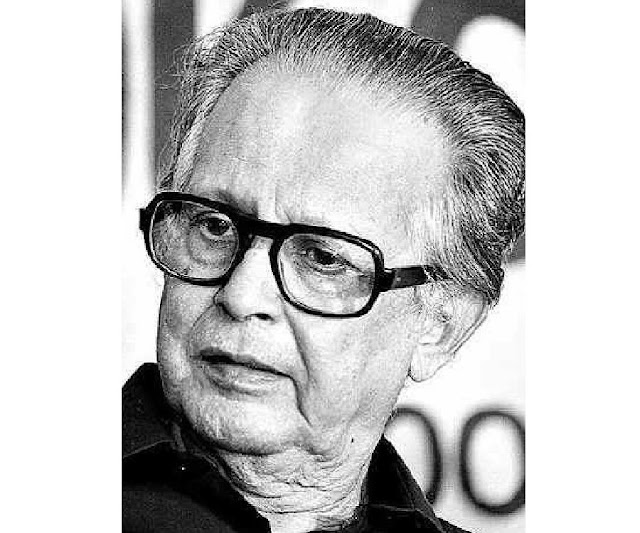Attempt a character sketch of the Astrologer and the Story Evokes Sympathy and Anger
The character of the astrologer in R.K. Narayan's short story
"An Astrologer's Day" is a fascinating and complex one. The story,
set in a small Indian town, revolves around the life and profession of this
enigmatic individual. Through his actions, thoughts, and interactions, the
character of the astrologer evokes a range of emotions, including sympathy and anger,
from the readers.
Character
Sketch of the Astrologer:
Name: The astrologer's name remains undisclosed in the story,
reflecting his anonymity and the secretive nature of his profession.
Appearance: The astrologer is described as having a
disheveled and unkempt appearance. His clothes are old and shabby, and he
carries a small bag containing his astrological instruments. His overall
appearance is unassuming, and he seems like an ordinary, unremarkable man.
Profession: The astrologer's profession is a central aspect
of his character. He claims to possess the ability to predict the future and
provides astrological consultations to clients, reading their palms and making
predictions based on their birth charts. This profession allows him to earn a
meager income and eke out a living.
Also Read-
Comment On The Problems And Challenges Faced By The Post 1930s Novelists
Mysterious and Calculative: The astrologer is depicted as a
mysterious and calculative character. He maintains a certain level of secrecy
regarding his true identity, and his past remains hidden from the readers. He
is not one to divulge personal information willingly. This aura of mystery is
an essential part of his character, contributing to his appeal and intrigue.
Resourceful and Quick-Witted: The astrologer's resourcefulness
and quick wit are evident throughout the story. He skillfully manages to set up
his makeshift astrological booth and attract customers. He uses his knowledge
of human psychology to convince clients that he possesses genuine astrological
powers. His resourcefulness is a key aspect of his character, enabling him to
navigate his challenging life.
Practical and Opportunistic: The astrologer's practicality
and opportunistic nature are essential traits. He does not hesitate to deceive
his clients by providing vague and general predictions that could apply to
anyone. He recognizes the economic struggles of his clients and uses their
desperation to his advantage, extracting as much money as possible from them.
His opportunism, while morally questionable, is a survival mechanism in his
world.
Superstitious Beliefs: Interestingly, despite his profession,
the astrologer harbors his own superstitious beliefs. He himself is fearful of
the very astrological tools he uses to predict the future. This duality in his
character—relying on superstition for his livelihood while privately fearing
its consequences—adds depth to his portrayal.
A Lonely Existence: The astrologer's life is a lonely one. He
leads a solitary existence, with no family or close companions. His loneliness
is further emphasized by his nightly routine of having dinner alone and
returning to his makeshift stall. This loneliness underscores the hardships and
isolation that characterizes his life.
How
the Story Evokes Sympathy:
Economic Hardships: The astrologer's economic struggles evoke
sympathy from the readers. His shabby appearance and the need to make a living
through deceitful means paint a picture of a man who is pushed to the margins
of society. His financial woes make it easy for readers to sympathize with his
predicament.
Loneliness: The astrologer's solitary existence and his
nightly ritual of dining alone highlight the loneliness that defines his life.
His isolation from society and lack of personal connections elicit feelings of
empathy.
Fear of the Past: The astrologer's fear of his own past,
particularly the events that led to him leaving his village and adopting a new
identity, generates sympathy. The reasons for his escape and the possibility of
a dark history haunt him, contributing to his enigmatic character.
Also Read-
Examine The Treatment Of Time In Clear Light Of Day
Desperation of His Clients: The clients who seek the
astrologer's services are often depicted as desperate and vulnerable. They come
to him with hopes of finding answers or solutions to their problems, and the
astrologer's exploitation of their desperation elicits sympathy for their
gullibility.
The Struggle for Survival: The astrologer's ability to adapt
to a challenging and uncertain life reflects the universal struggle for
survival. Readers can sympathize with his efforts to make ends meet, even if it
means resorting to deceit.
How
the Story Evokes Anger:
Deceptive Practices: The astrologer's deceptive practices and
exploitation of the clients' vulnerabilities are morally reprehensible. His
willingness to provide vague and false predictions in exchange for money is a
cause for anger, as it preys on people's belief in his abilities.
Manipulation: The astrologer's manipulation of his clients'
emotions and the deliberate use of psychological tactics to convince them of
his legitimacy are infuriating. He knowingly exploits their trust and beliefs
for personal gain.
Lack of Empathy: The astrologer's lack of empathy for his clients, as well as his willingness to manipulate their emotions, reflects a callous disregard for their well-being. His actions demonstrate a lack of compassion that can anger readers.
Superstitious Beliefs: The astrologer's fear of his own tools
and superstitious beliefs, despite his profession, can be seen as hypocritical.
This contradiction may frustrate readers and provoke a sense of anger at his
duplicity.
Economic Disparities: The story highlights the economic
disparities and desperation that force individuals like the astrologer into
deceitful professions. This larger societal issue, which contributes to his
actions, can lead to frustration and anger.
Conclusion
R.K. Narayan's "An Astrologer's Day" presents
readers with a compelling character in the form of the astrologer. This
character is characterized by mystery, resourcefulness, practicality, and
opportunism. The astrologer's life is marked by economic hardships, loneliness,
and a fear of his own past. As the story unfolds, it evokes sympathy for the
astrologer's struggles and loneliness, as well as anger at his deceptive
practices and exploitation of vulnerable clients.
Attempt a character sketch of the Astrologer and the Story Evokes Sympathy and Anger-The complexity of human nature and the moral difficulties
present in people who face life's obstacles are reflected in the astrologer's
persona. Readers are prompted to consider the moral conundrums and gray areas
that frequently typify human action by his presentation.
FAQ.
What
is the significance of the astrologer's fear of his own tools in "An
Astrologer's Day"?
The astrologer's fear of his own tools, such as the horoscope
book, adds depth to his character. It reveals his superstitious beliefs and
creates a sense of irony, as he relies on these tools for his livelihood while
privately fearing them. This fear underscores the enigmatic nature of his
character.
How
does the astrologer manipulate his clients in the story?
The astrologer manipulates his clients through psychological
tactics. He provides vague and general predictions that can apply to anyone,
convincing his clients that he possesses genuine astrological powers. He preys
on their trust and vulnerability, exploiting their emotional needs for answers
and solutions.
Why
does the astrologer's character evoke sympathy from readers?
The astrologer's character evokes sympathy due to his
economic hardships, loneliness, and his own fear of the past. Readers can
empathize with his struggles to make a living and his isolated existence. His
exploitation of clients' desperation may also generate sympathy for their
gullibility.
What
role does the astrologer's past play in the story?
The astrologer's past is shrouded in mystery, and the story
hints at events that led to his escape from his village and the adoption of a
new identity. His fear of the past adds depth to his character and contributes
to the enigmatic aura that surrounds him.
How
does "An Astrologer's Day" explore the theme of morality?
The story delves into the moral complexities of the
astrologer's actions. His deceptive practices, manipulation of clients, and
exploitation of their vulnerabilities raise ethical questions. The story
prompts readers to contemplate the shades of gray in human behavior and the dilemmas
individuals face in challenging circumstances.








0 comments:
Note: Only a member of this blog may post a comment.